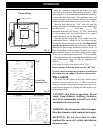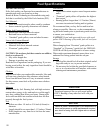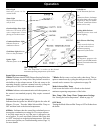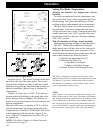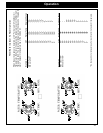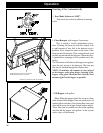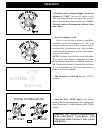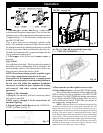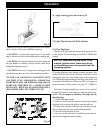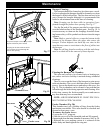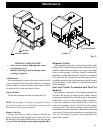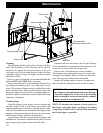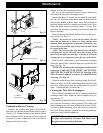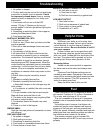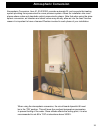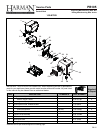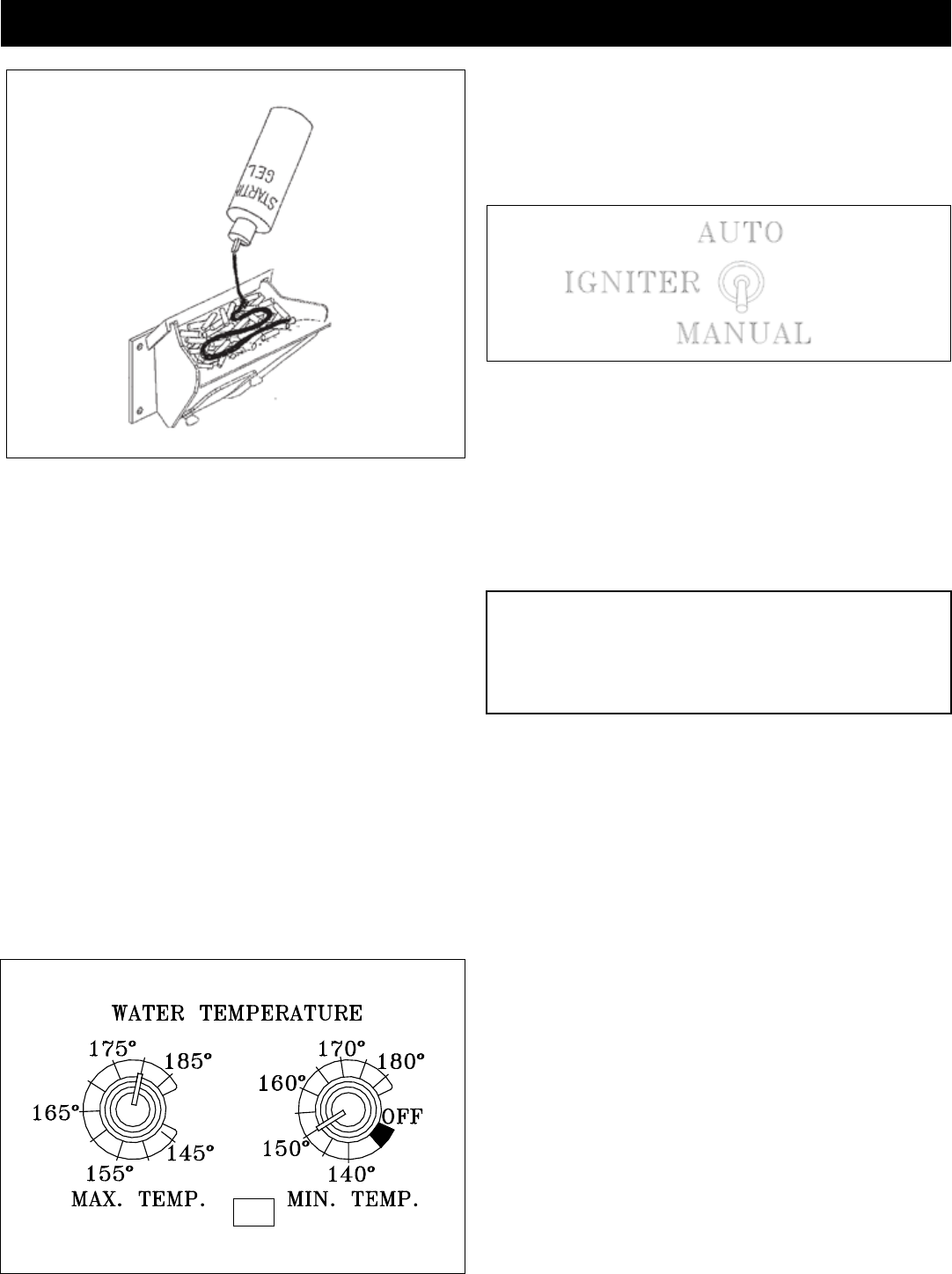
29
NOTE: Stirring the starting gel into the pellets usually
allows the re to become established quicker.
CAUTION: A vapor ash could occur if too much
time is allowed to pass before lighting the starting gel.
CAUTION: Care must be taken not to get starting gel
on your hands or clothing. Serious burns could occur
during the lighting process.
CAUTION: Never try to apply more starting gel to an
already burning re, or a re with smoldering pellets.
“NEVER USE GASOLINE, GASOLINE-TYPE
LANTERN FUEL, KEROSENE, CHARCOAL
LIGHTER FLUID, OR SIMILAR LIQUIDS TO
START OR “FRESHEN UP “ A FIRE IN THIS
APPLIANCE. KEEP ALL SUCH LIQUIDS WELL
AWAY FROM THE UNIT WHILE IN USE”.
Fig. 15
11. Apply starting gel as shown in Fig.15
12. Light The Starting Gel With A Match.
13. Close The Doors
The re will light and the control will adjust the re
to the proper level according to the MAX TEMP dial
setting.
Solid-fuel burning appliances need to be cleaned
frequently because soot, creosote, and ash may accu-
mulate. If you suspect a chimney/vent pipe re do
the following:
1. Call the re department.
2. Remove fuel from the burn pot using the burnpot
scraping tool to scrape the pellets into the ash pan.
3. Remove the ash pan from the unit and take outside.
Do not place ash pan on a combustible material.
4. Turn off circuit breaker at unit.
5. Do not use the unit until a qualied person has in-
spected your appliance and venting.
Fig. 16
If heating demand stops during manual operation, the
control will take the unit to low burn. If no heat is used
during this time, the water temperature will continue to
rise. When the temperature gets too high, the feeder will
be turned off and the re will go out. This will require a
manual re-start of the system. (see page 23 “7 Blinks”)



